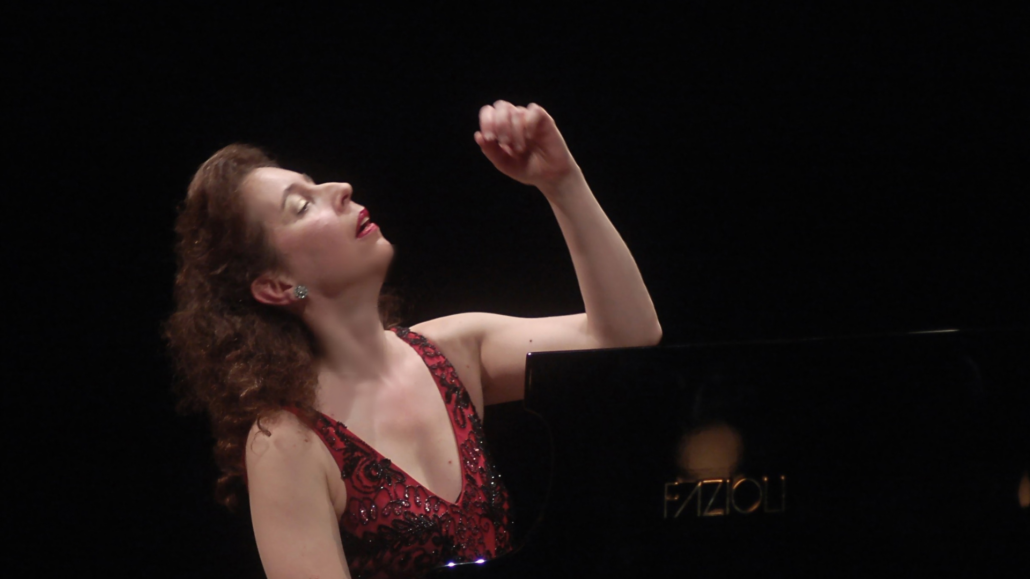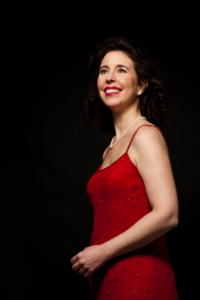ANGELA HEWITT PLAYS MOZART
The gifted Canadian pianist Angela Hewitt has been a frequent visitor to Victoria over the past 30 years, and it’s not only music that draws her back. “I have close friends there, and it’s a nice place to go,” she explains reached at home in London, England, where she’s resting after a fast-paced tour of the Baltic states. “And so the combination of an excellent orchestra and people I love and nice scenery… It’s hard to beat that!”
Hewitt has especially kind words for Victoria Symphony concertmaster Terence Tam, who’ll be on-board when she joins the ensemble for an almost-all-Mozart program in this 2024-25 season. “You have a really good group at the moment,” she observes, “and your leader is an excellent, excellent player, which is always a good thing. I like a leader who is very active; when you’re leading from the piano you need that as well.”
It’s possible that some of the orchestra’s more adventurous followers will be nodding off at the notion of a program in which three out of four works played have been written by the brilliant but undeniably over-exposed Wolfgang Amadeus Mozart. “Nothing here we haven’t heard before,” they might be excused for thinking, but they’d be wrong. Hewitt, who has already negotiated the complete keyboard sonatas and concertos of both Johann Sebastian Bach and Ludwig van Beethoven, began her Mozart Odyssey in 2024, and she’s already discovered new subtleties and beauties in the canon that have surprised her, and that will surprise listeners too.
Most importantly, Hewitt says, she’s come to understand that there is a kind of conceptual continuity running through all of Mozart’s scores, giving the lie to the notion that his early compositions were long on prodigal verve but short on substance. “What’s interesting is to see the germ of what comes later in the early works,” she notes. “For instance, next week I’m playing the Piano Concerto No. 6 in B-flat major, whose slow movement sort of foreshadows a movement in the 21st. I prefer to think of the sonatas and the concertos together, and you have several movements in the early sonatas that, later on, he developed into music even more sublime.
“But you also see, from beginning to end—and especially in the early works, which a lot of people think aren’t so interesting—the influence of the human voice on what Mozart was writing,” she continues. “You have to be a great ‘singer’ to play Mozart; his music is just always vocal, even in the fast runs. Every note, every run, has to be sung, and go somewhere—and it also has to sparkle and be alive and full of laughter and sorrow. There’s all this character, and this theatricality, and this vocal quality which is there for me.”
Considering the composer’s theatricality, Hewitt has staged her Victoria Symphony concert in an especially intriguing way. The first half will open with the Rondo for Piano and Orchestra in D major, a set of variations from 1782 that the pianist likes to think of as the soundtrack for a glittering Habsburg gala. “It’s really like the opening of a Viennese ball,” she says fondly. “You know, you can see the countesses entering. So it’s a great warm-up piece.”
From there, she’ll move into the aforementioned Piano Concerto No. 21 in C major, one of the most dazzling and technically demanding works in Mozart’s oeuvre. Often dubbed the “Elvira Madigan” concerto, after its use in Bo Widerberg’s 1967 film of that name, it is mostly lighthearted, up-tempo, and, as Hewitt points out, “truly Viennese”. No wonder soloist Géza Anda’s soundtrack album was a best-seller for the Deutsche Grammophon record label!
The second half of Hewitt’s program follows a similar structure: a relatively short work to set the mood, after which we’ll hear another of Mozart’s most accomplished and enduring concertos. But the scene set here will be entirely different. Whereas the Rondo in D major reinforces the sense of occasion that attends any royal ball—or, for that matter, any appearance by Angela Hewitt—the 20th-century British composer Gerald Finzi’s Eclogue will lead listeners into a contemplative and attentive frame of mind, the better to appreciate the dark beauty of the Piano Concerto No. 24 in C minor.
There’s musical as well as emotional logic behind this choice. Both Mozart and Finzi revered Bach, and as Hewitt astutely points out the Piano Concerto No.24 contains some of the former’s most Bach-inspired writing. “There’s actually a lot of counterpoint in the C minor, especially in the last movement, and so that goes with the Finzi,” she notes. “The Finzi is totally contrapuntal–and it’s also nice to do something you don’t hear every day.”
It’s also welcome to discover that a Mozart concerto from 1786 fits perfectly with a tone poem from the turbulent 1920s. Skeptics be warned!
Notes by Alex Varty



